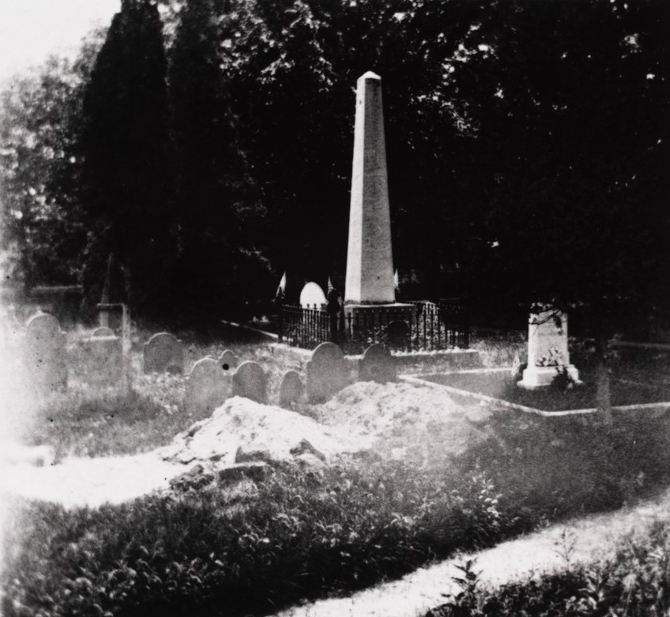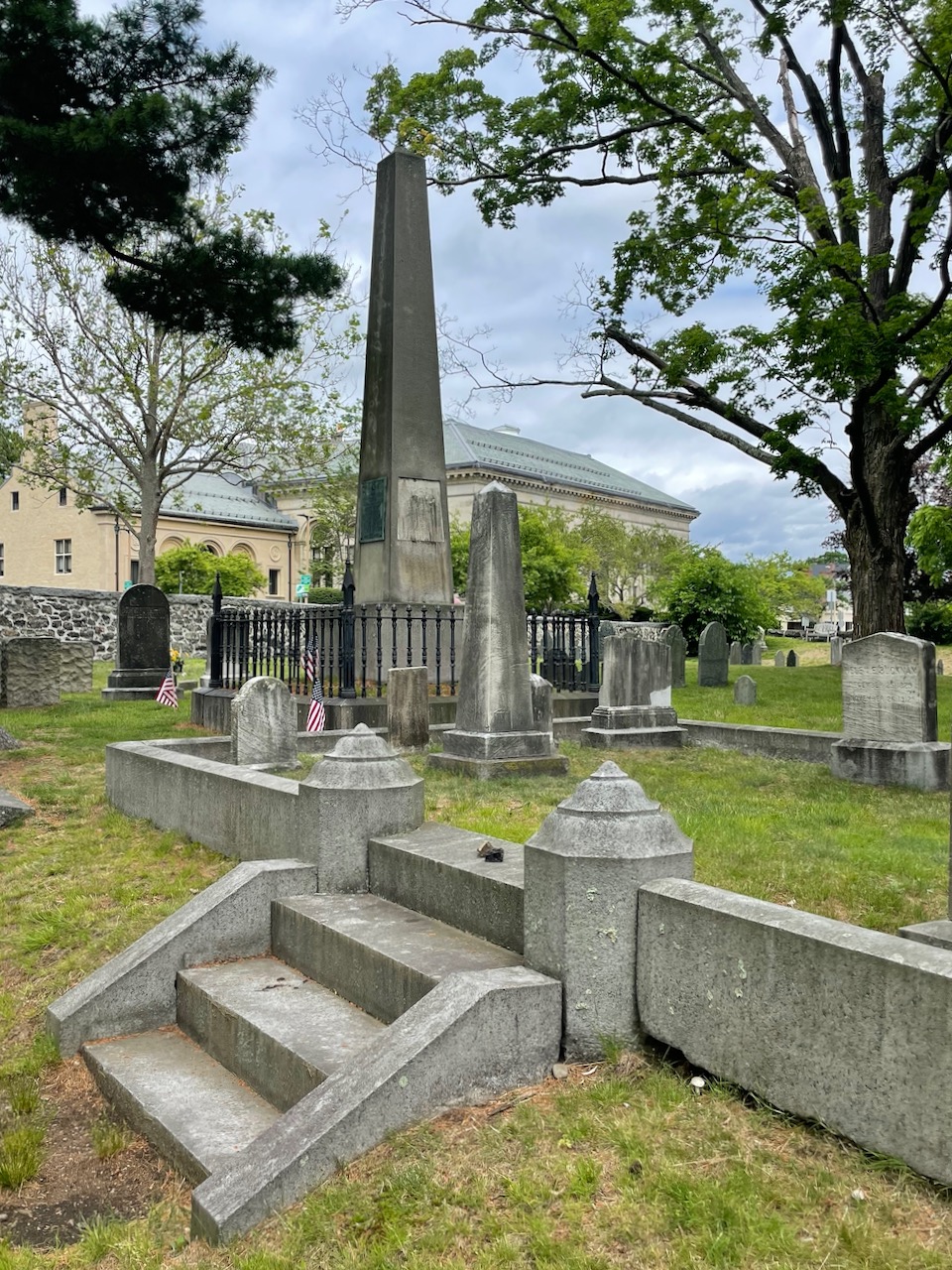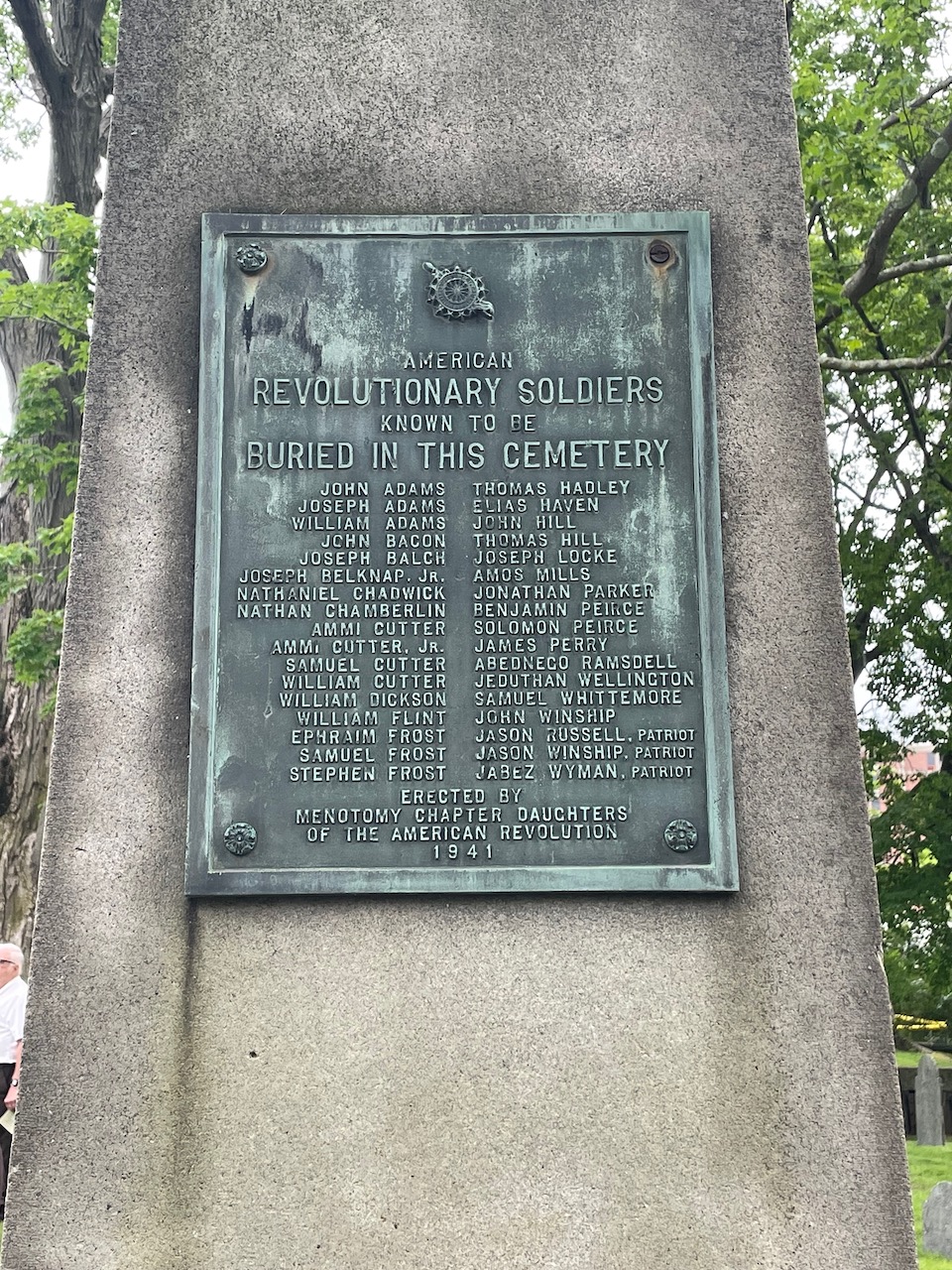One of the most prominent features of Arlington’s Old Burying Ground is the nineteen-foot-tall obelisk of pure New Hampshire granite encircled by a stone and iron fence honoring those killed in Menotomy (incorporated as West Cambridge in 1807 and renamed Arlington sixty years later) on April 19, 1775, the first day of the Revolutionary War.
Following one of the bloodiest battles of the day, Jason Russell and eleven other Patriots were buried in a mass grave without coffins wearing the clothes in which they fell. A headstone for Jason Russell was erected near the site of the mass grave.
It reads:
Mr. JASON RUSSELL was
barbarously murdered in his own
House by GAGE'S bloody Troops
on ye 19th of April 1775, aetatis 59.
His body is quietly resting
in this Grave with Eleven
of our friends, who in Like
manner, with many others, were
cruelly Slain, on that fatal day.
Blessed are ye dead, who die in ye Lord.
The remains of the twelve men were disinterred and placed in a stone vault set under Arlington’s Revolutionary War Monument on April 22, 1848.
The initiative to create the monument was spearheaded by a committee and funded with money raised by popular subscription at a cost of $460.67. In the archives of the Arlington Historical Society is a letter from the Honorable James Russell on behalf of the committee to the subscribers detailing the process through which the monument was completed, including the history of its location, account of funding and expenses, details of construction, and the names of those it honors.
In Edmund Tufts' April 29, 1848 feature article “Interesting Relics” in the Boston Statesman, the disinterment of the bodies is described. Noting their remarkable state of preservation, he writes, “The snows of seventy-two winters had covered them, yet still to be seen were remnants of their clothing, rusty buttons and old shot pouch, two flints, stockings adhering to their shoes…”
Tufts further opines that the erection of the monument over their remains is fitting and of a touching character; a credit to those who conceived, executed, and liberally funded its completion.
Erected and dedicated in June of that year, it was described in the June 26th edition of the Boston Daily Times as, “a beautiful granite obelisk… creditable to the artistic skill of the workmen who erected it, as well as the Patriotism of the people of West Cambridge who freely furnished the funds required to defray the expenses of the work.”
A marble tablet inserted into the obelisk reads:
Erected by the Inhabitants of West Cambridge, A.D. 1848, over the common grave of Jason Russell, Jason Winship, Jabez Wyman and nine others, who were slain in this town by the British Troops on their retreat from the Battles of Lexington and Concord, April 19th, 1775. Being among the first to lay down their lives in the struggle for American Independence.
Two additional bronze plaques have been added to Arlington’s Revolutionary War Monument since its dedication. One lists the names of soldiers from area towns killed at the Battle of Menotomy and the other, erected by the Menotomy Chapter of the Daughters of the American Revolution in 1941, acknowledges those Revolutionary War soldiers known to be buried in the Old Burying Ground.




